Distraught families want answers after 179 people die in South Korea’s deadliest domestic air disaster
South Korea’s president declares a seven-day national mourning period as officials begin investigation into what happened on the Boeing 737-800
Your support helps us to tell the story
From reproductive rights to climate change to Big Tech, The Independent is on the ground when the story is developing. Whether it's investigating the financials of Elon Musk's pro-Trump PAC or producing our latest documentary, 'The A Word', which shines a light on the American women fighting for reproductive rights, we know how important it is to parse out the facts from the messaging.
At such a critical moment in US history, we need reporters on the ground. Your donation allows us to keep sending journalists to speak to both sides of the story.
The Independent is trusted by Americans across the entire political spectrum. And unlike many other quality news outlets, we choose not to lock Americans out of our reporting and analysis with paywalls. We believe quality journalism should be available to everyone, paid for by those who can afford it.
Your support makes all the difference.Grieving families screamed and wept at a South Korean airport as the names of the dead were confirmed after a plane carrying 181 people crashed, killing all but two on board, in the worst domestic aviation disaster in the country’s history.
The Jeju Air passenger plane skidded off a runway at Muan international airport, slammed into a concrete fence and burst into flames as the Boeing 737-800 from Bangkok attempted an emergency landing on Sunday, at 9.03am local time.
Officials said two members of the cabin crew were rescued alive, but all 175 passengers, both pilots and the two other crew members were killed in the fire that swept through the wreckage.
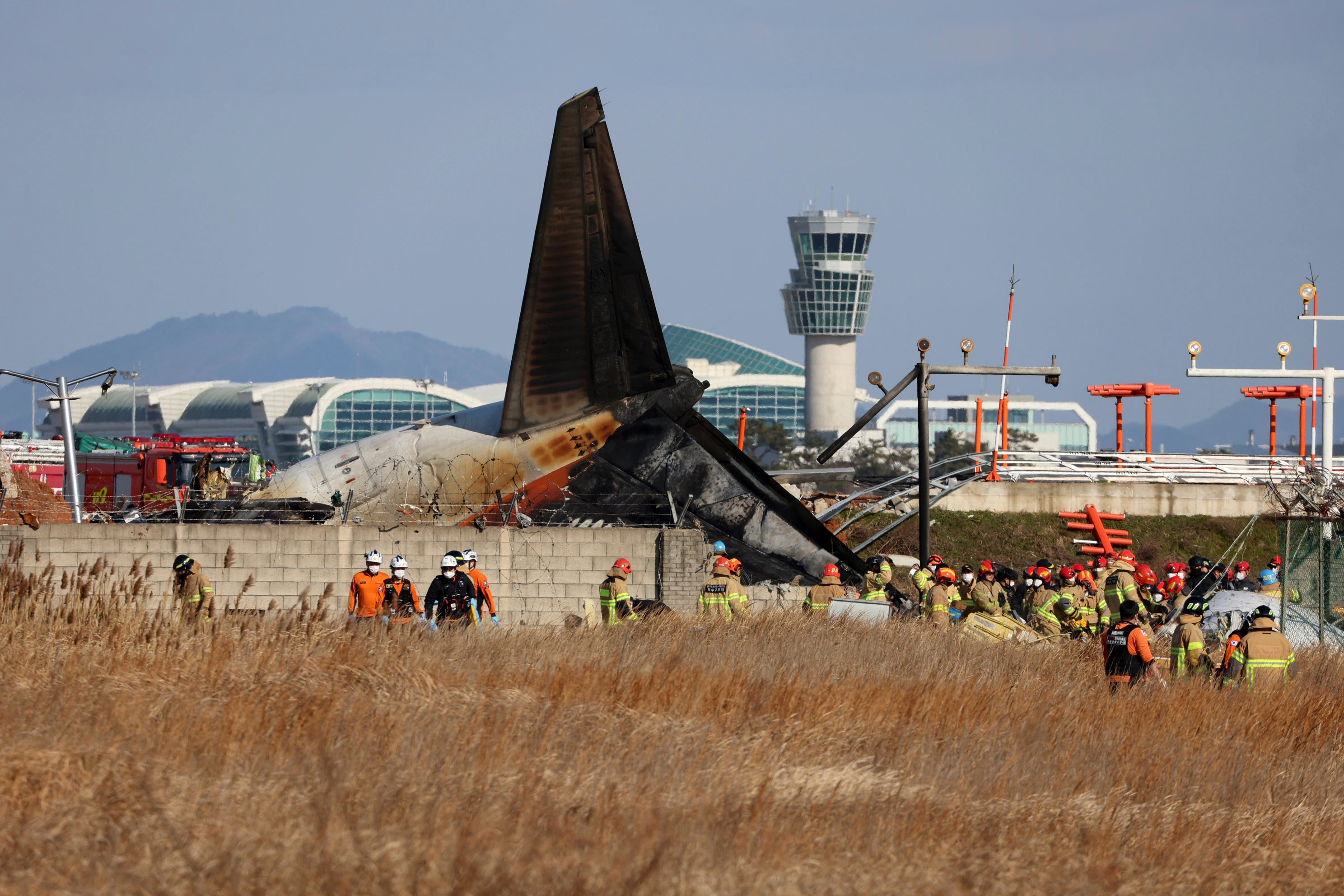
An investigation has been launched, with a bird strike collision among the contributory factors being considered for the crash. Preliminary reports also suggest the plane’s front landing gear failed to deploy.
South Korean president Choi Sang-mok has declared a seven-day national mourning period.
Inside the arrival area of the airport, about 185 miles away from the capital Seoul, authorities called out the names of some of those killed in the crash, triggering an explosion of grief and rage among the passengers’ families in the terminal where their loved ones had been due to return home.
Among the dead were three generations of the same family, with a man in his sixties telling Korean Yonhap news agency that his sister-in-law, daughter, her husband and their young children were tragically on board.
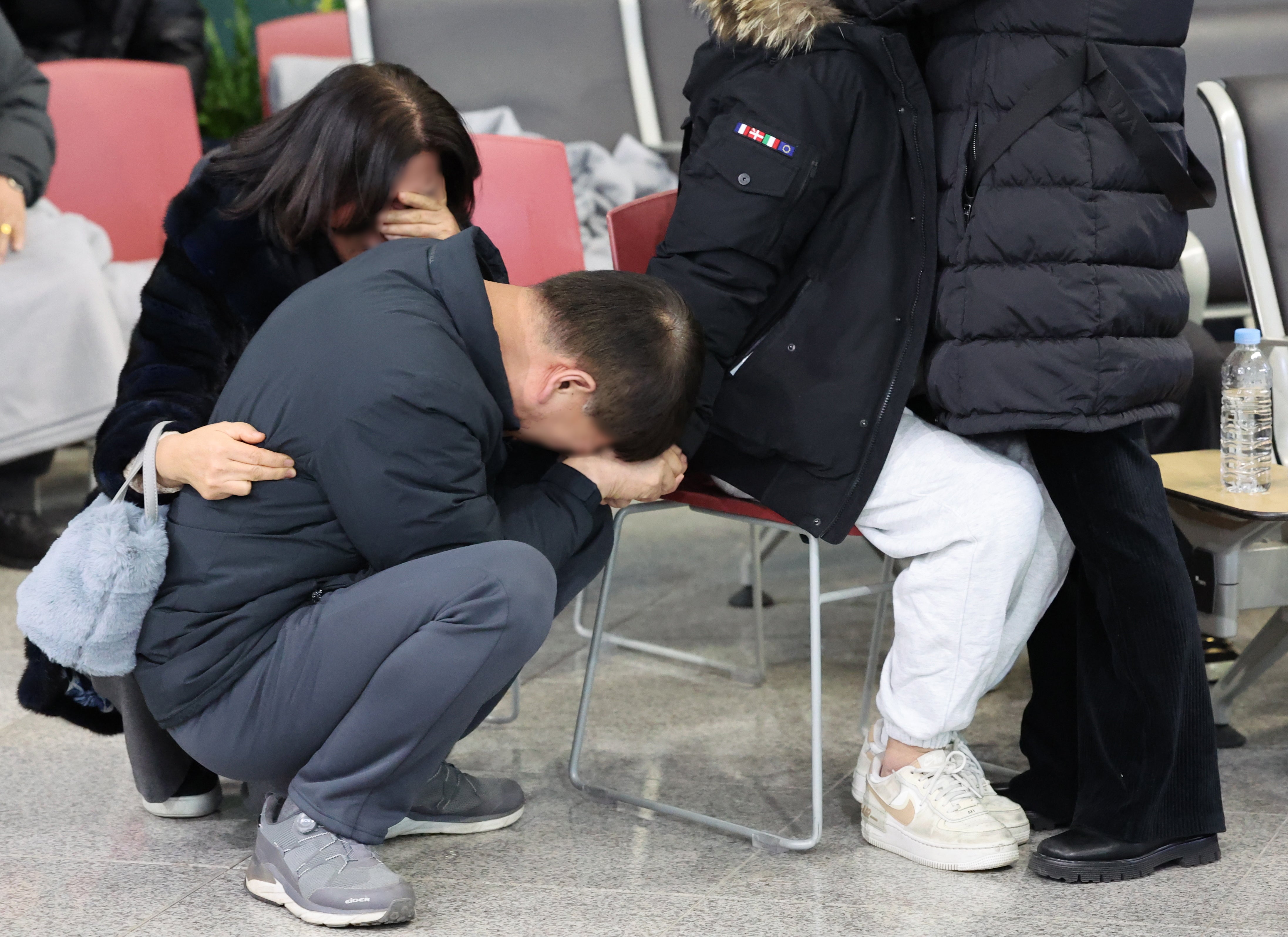
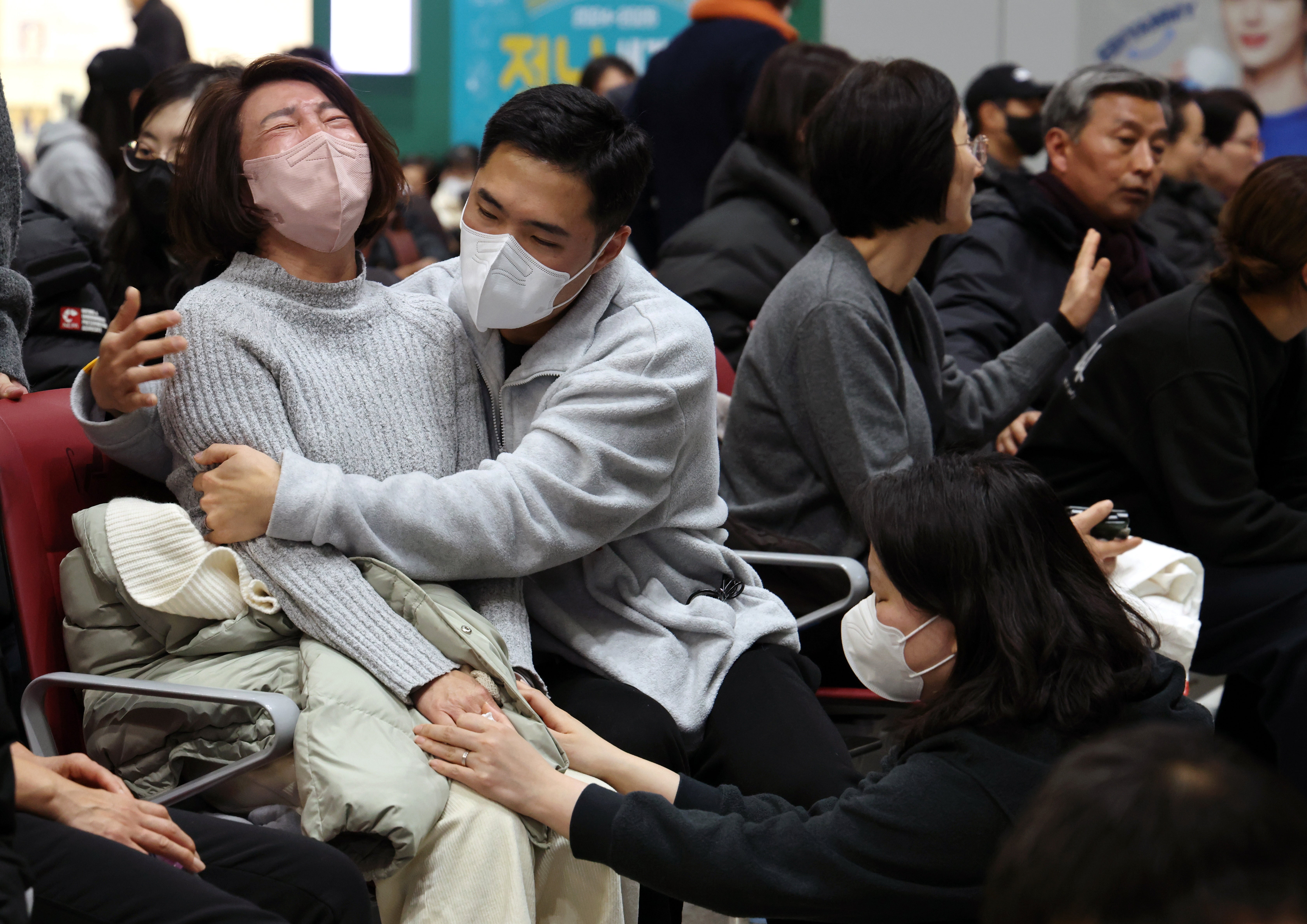
The youngest passenger was a three-year-old boy, the oldest was 78, while five of the dead were children under the age of 10, authorities said.
Maeng Gi-su, 78, told the BBC his nephew and his nephew’s two sons were on the plane on the family’s first trip abroad. He said: “I can’t believe the entire family has just disappeared. My heart aches so much.”
Jeon Je-young , 71, said his daughter Mi-sook died on the plane. The wife and mother had been on her way home after travelling with friends to Bangkok for the Christmas holiday.
“The water near the airport is not deep. Here are softer fields than this cement runway. Why couldn’t the pilot land there instead?” Mr Je-young said.
Following the crash landing, more than 1,500 emergency workers were dispatched to the scene, and a special disaster zone was later set up before investigators moved in to inspect the wreckage for clues over what happened.
Lee Jeong-hyeon, chief of the Muan fire station, said they were looking into various possibilities about what caused the crash, including whether the aircraft was struck by birds.
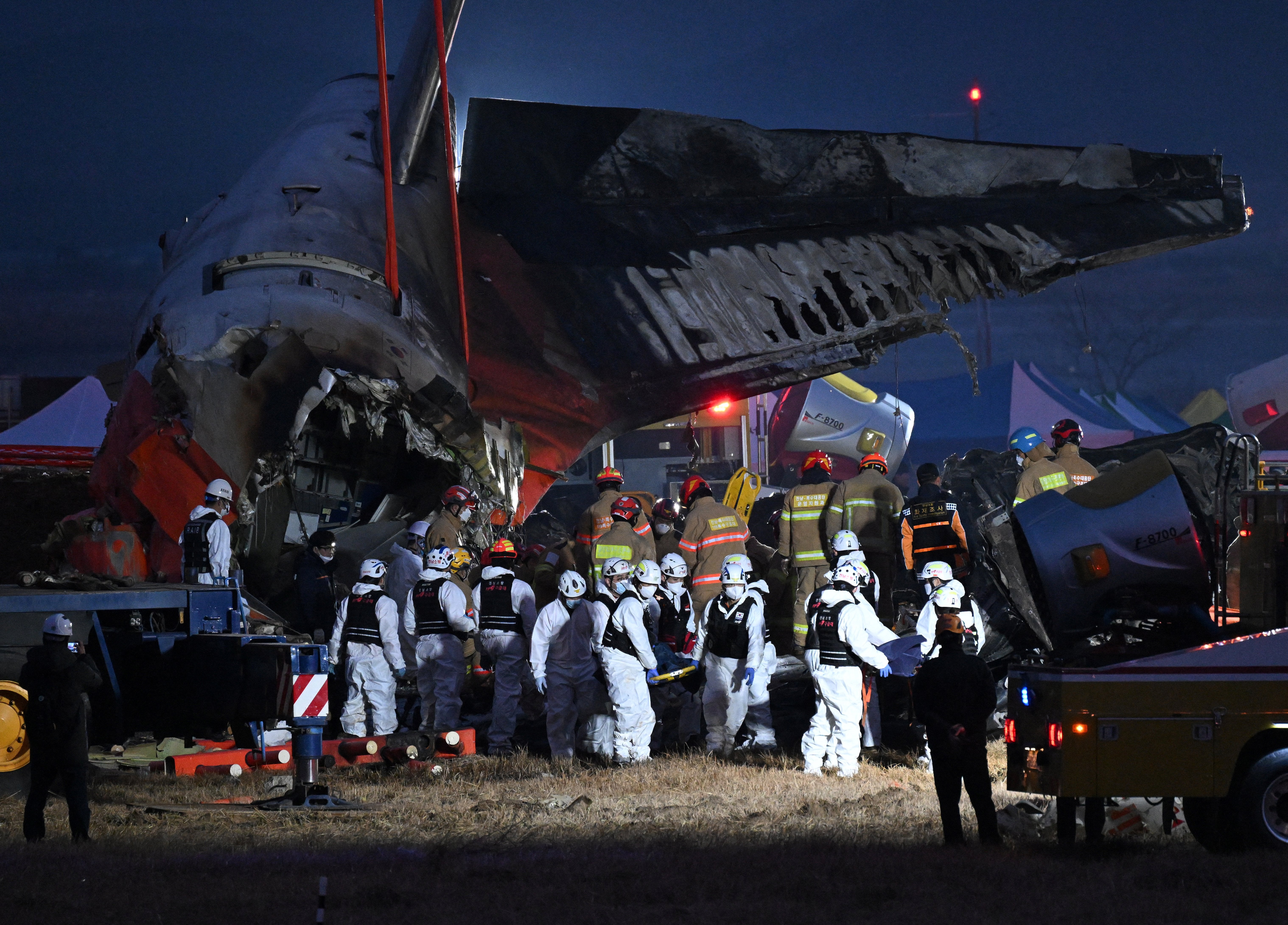
South Korean transport ministry officials later said their early assessment of communication records showed the airport control tower issued a bird-strike warning to the plane shortly before it intended to land.
The pilot then sent out a mayday signal before the plane overshot the end of the runway and skidded across a buffer zone before hitting the wall, officials said.
According to local media, a passenger on the flight sent a text message to a family member saying that a bird “was stuck in the wing” and that the plane couldn’t land. “Should I leave my last words?” the passenger then wrote.
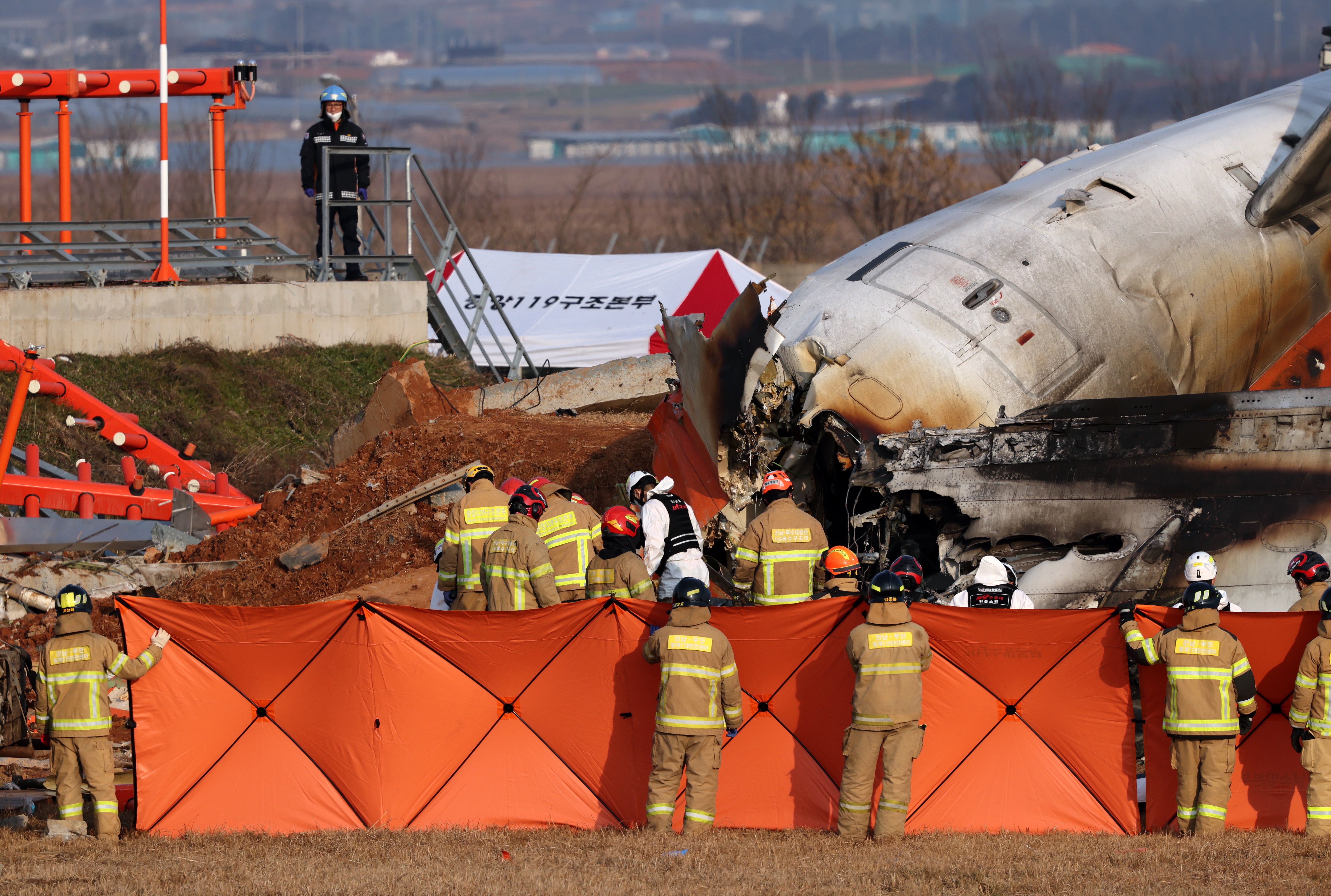
However, aviation commentators have cast doubts that a bird strike could have caused such damage.
“A bird strike is not unusual, problems with an undercarriage are not unusual. Bird strikes happen far more often, but typically they don’t cause the loss of an aeroplane by themselves,” said Airline News editor Geoffrey Thomas.
According to the transport ministry, investigators have recovered both black boxes from the wreckage; the cockpit voice recorder and the flight data recorder.
Under global aviation rules, South Korea will lead a civil investigation into the crash and automatically involve the National Transportation Safety Board in the United States where the plane was designed and built. Jeju Air claimed the crash was not due to “any maintenance issues”.
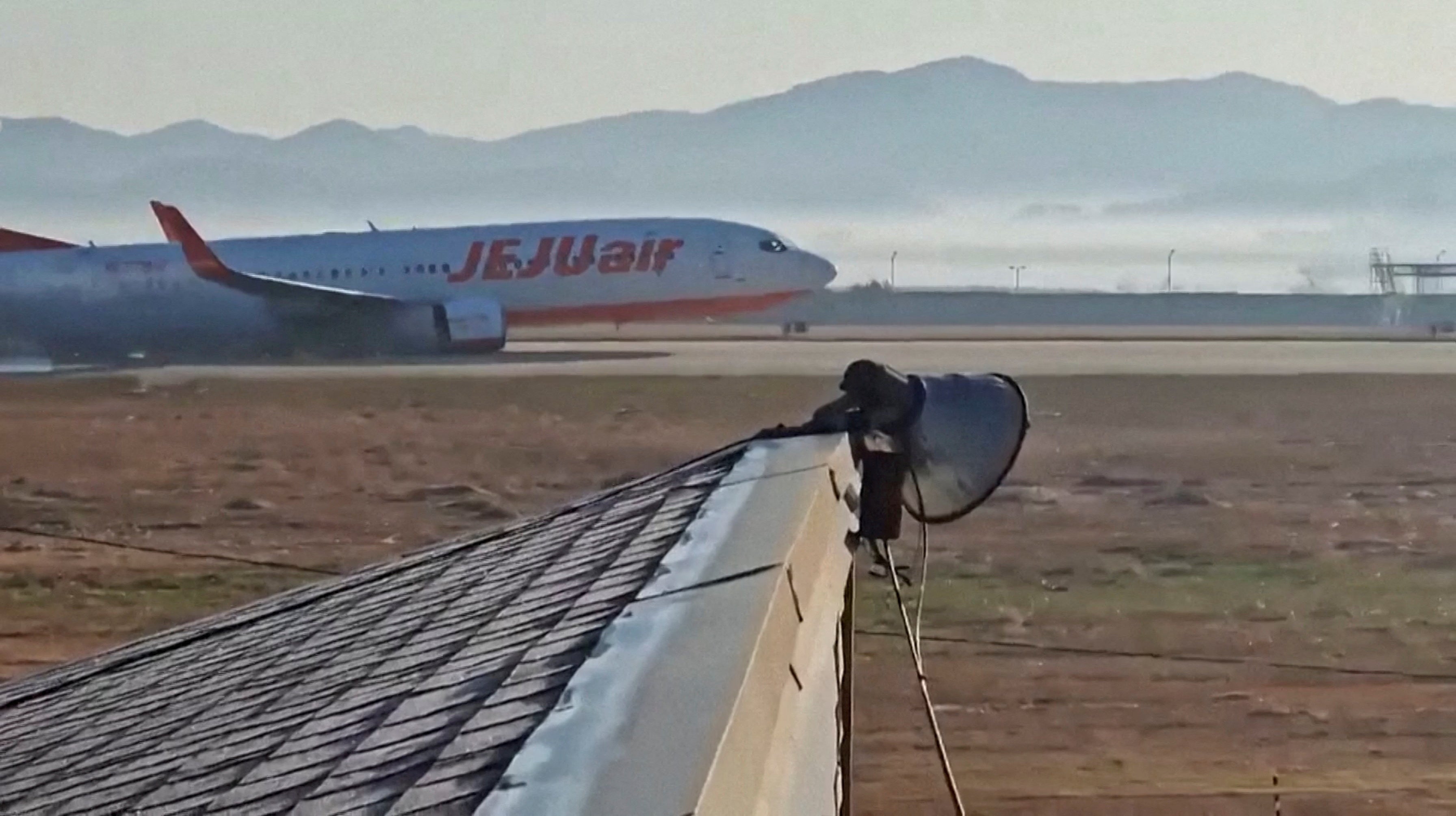
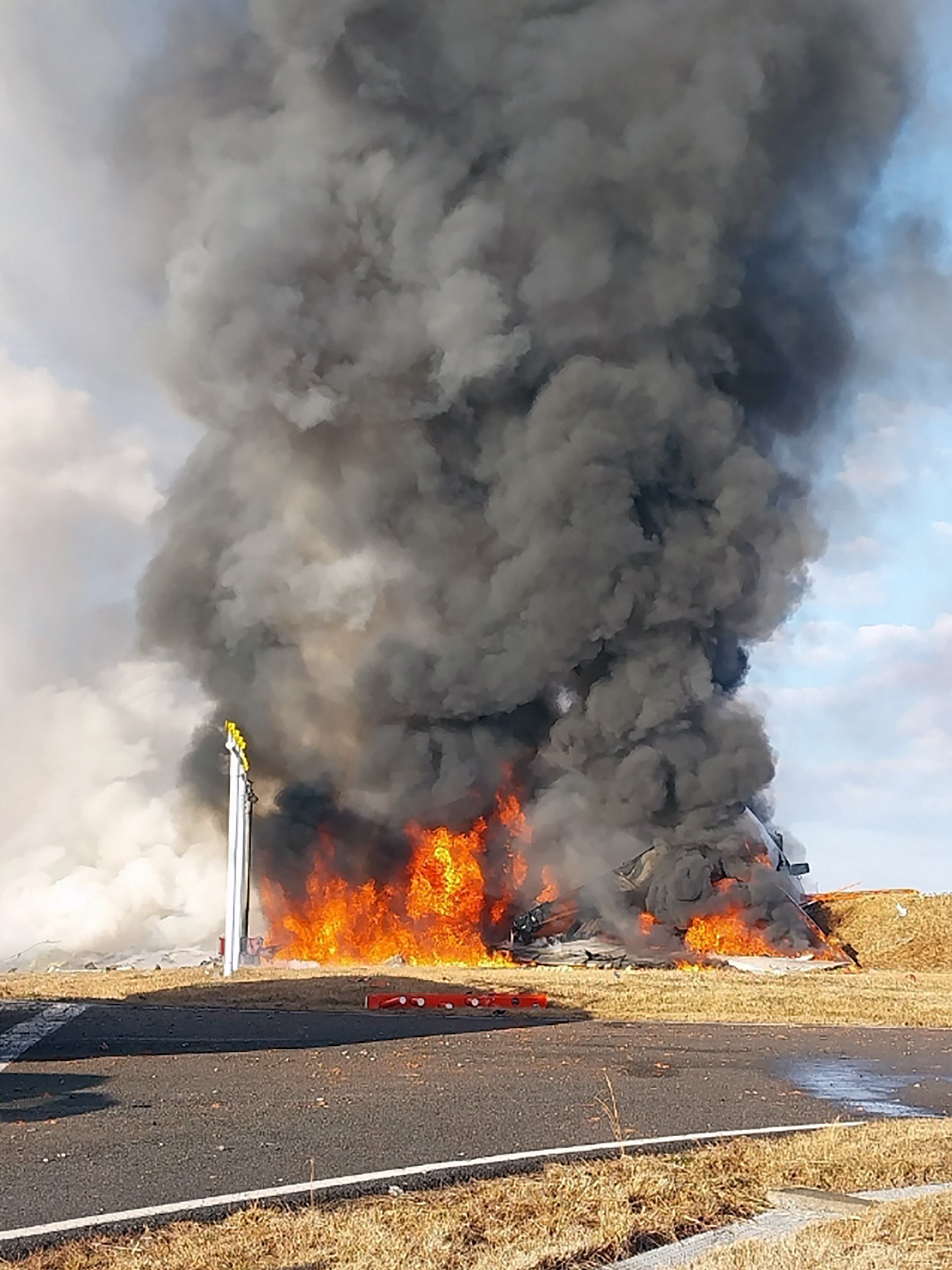
The carrier’s president, Kim E-Bae, deeply bowed with other senior company officials as he apologised to the bereaved families, stating that he feels “full responsibility” for the incident.
He said the company had not identified any mechanical problems with the aircraft following regular checkups and that he would wait for the results of government investigations.
Boeing also issued a statement. It said: “We are in contact with Jeju Air regarding flight 2216 and stand ready to support them. We extend our deepest condolences to the families who lost loved ones, and our thoughts remain with the passengers and crew.”
Investigators told Yonhapnews agency, however, that the voice recorder was damaged and that it could take up to a month to decode as a result.
On Sunday evening, Sir Keir Starmer was among world leaders to issue statements on the tragic incident.
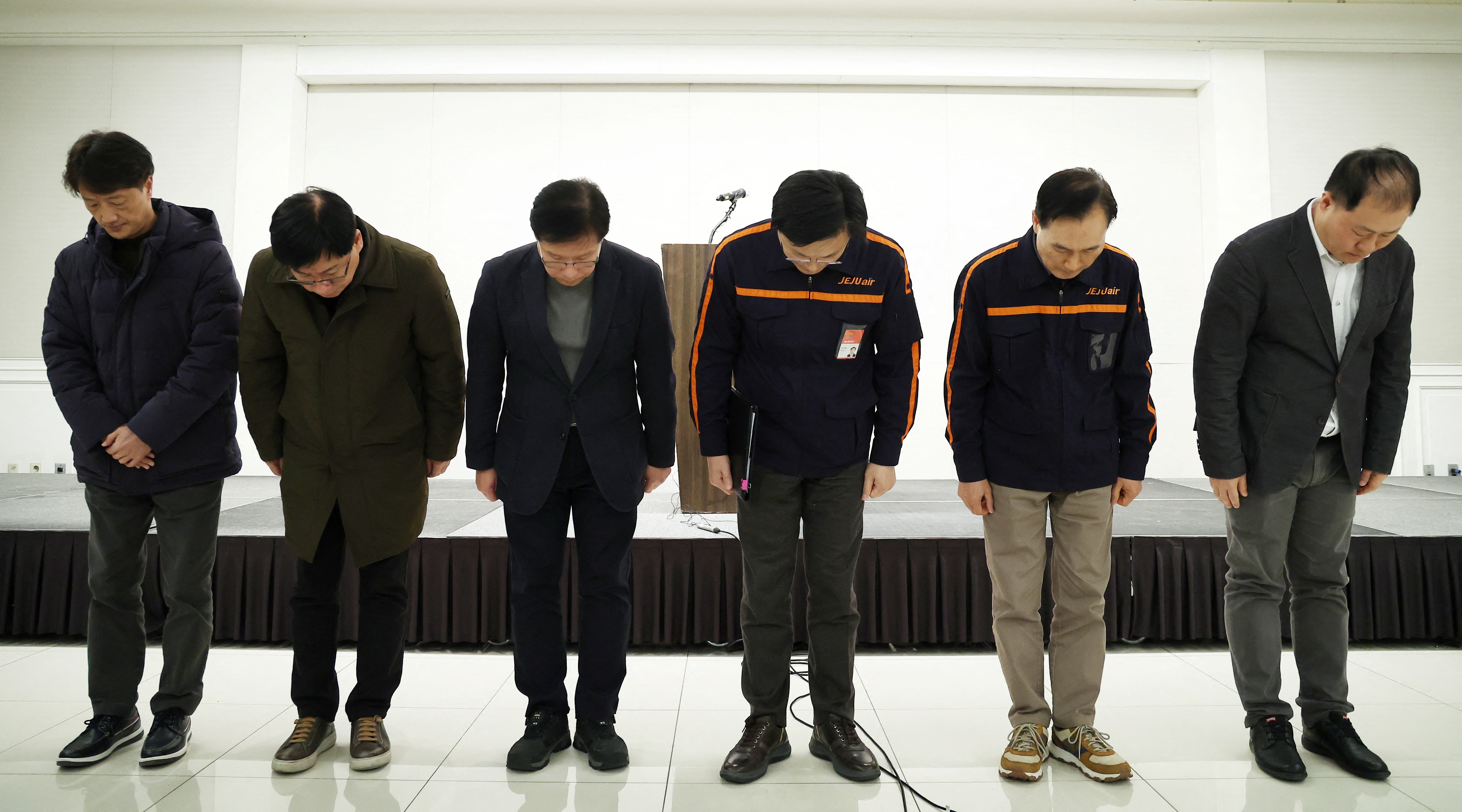
He said: “I send my deepest condolences to the victims and families of those who lost their lives in the tragic plane crash in Muan.
“I pay tribute to the work of the emergency responders and my thoughts are with the people of the Republic of Korea and Thailand at this terrible time.”
King Charles said he and the Queen would be holding the families and loved ones of those who died in their prayers.
The crash is one of the deadliest disasters in South Korea’s aviation history. The last time the country suffered a large-scale air disaster was in 1997, when a Korean Airlines plane crashed in Guam, killing 228 people on board. In 2013, an Asiana Airlines plane crash-landed in San Francisco, killing three and injuring around 200.
Associated Press contributed to this report

Join our commenting forum
Join thought-provoking conversations, follow other Independent readers and see their replies
Comments